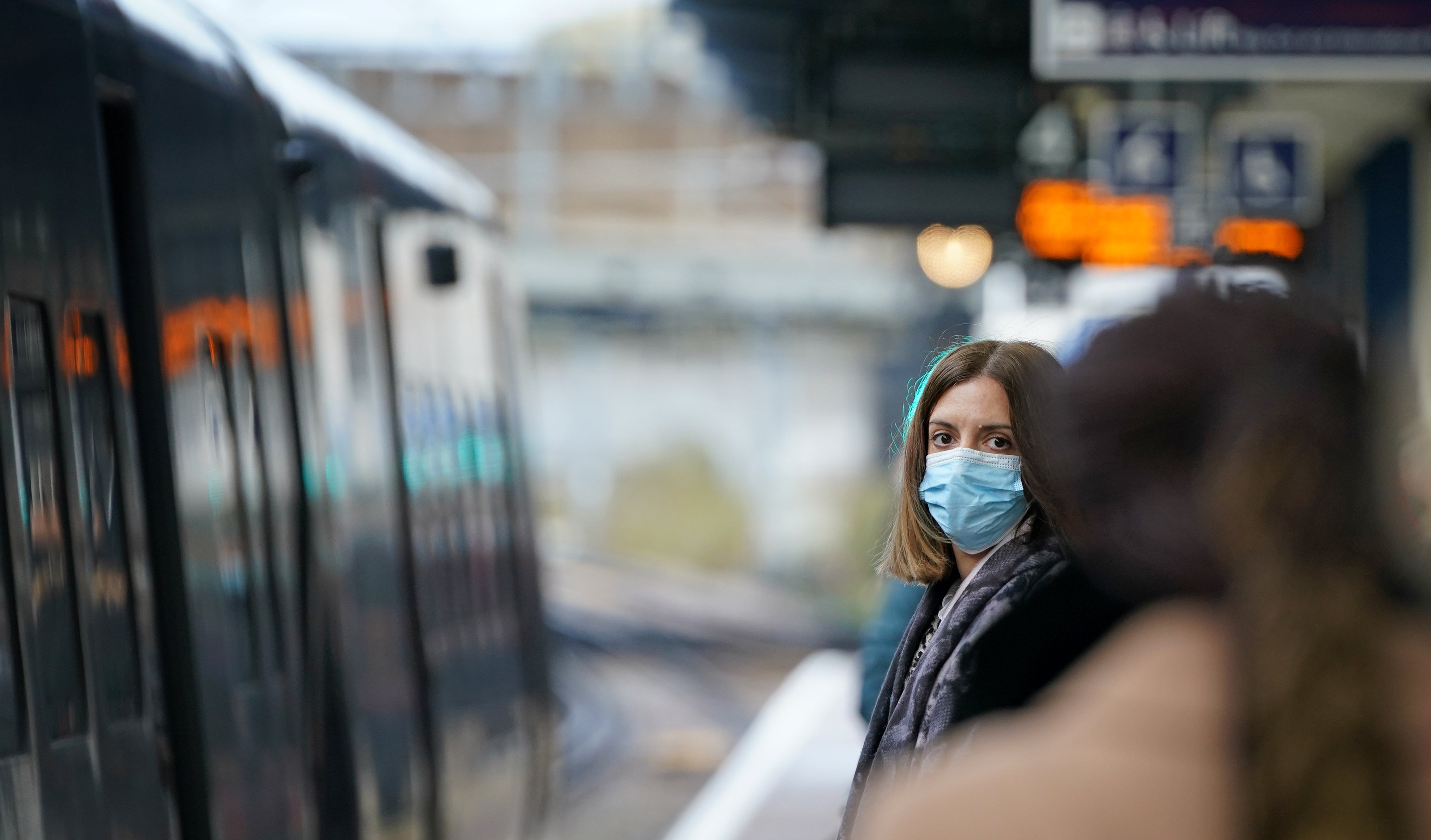Rail passenger numbers plummet following Omicron outbreak
Statistics from the Department for Transport show they were at 53% of pre-pandemic levels on Monday.

Your support helps us to tell the story
From reproductive rights to climate change to Big Tech, The Independent is on the ground when the story is developing. Whether it's investigating the financials of Elon Musk's pro-Trump PAC or producing our latest documentary, 'The A Word', which shines a light on the American women fighting for reproductive rights, we know how important it is to parse out the facts from the messaging.
At such a critical moment in US history, we need reporters on the ground. Your donation allows us to keep sending journalists to speak to both sides of the story.
The Independent is trusted by Americans across the entire political spectrum. And unlike many other quality news outlets, we choose not to lock Americans out of our reporting and analysis with paywalls. We believe quality journalism should be available to everyone, paid for by those who can afford it.
Your support makes all the difference.Demand for rail travel has plummeted since the emergence of the Omicron coronavirus strain, new figures show.
Passenger numbers were at 53% of pre-pandemic levels on Monday, according to preliminary statistics from the Department for Transport
That is down from 61% a week earlier, and 68% on Monday December 6.
People in England have been advised to work from home since Monday December 13, bringing the country in line with the rest of the UK.
Rail travel has also been hit by hundreds of services being cancelled this week due to pandemic-related staff shortages.
Andy Bagnall, director-general at industry body the Rail Delivery Group, said: “Rail companies are working hard to keep people moving during the festive season, although, as the latest data shows, many fewer people are travelling due to the impact of the Omicron variant.
“This is hitting rail industry finances once again, which is why we know we need to change if we are to build back a stronger railway after the pandemic, becoming more financially sustainable and more customer-focused, and without taking more than our fair share of taxpayer support.”
Bus use in Britain outside London was at 62% of pre-virus levels on Monday, down from 78% a week earlier.
Road traffic has remained relatively stable in recent weeks.